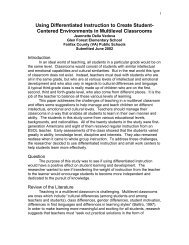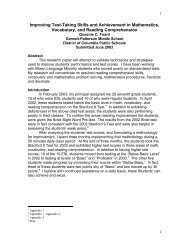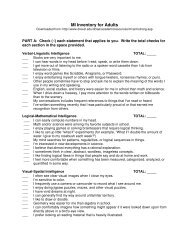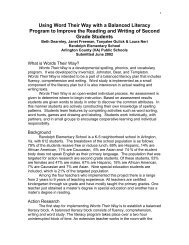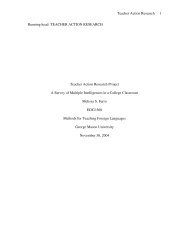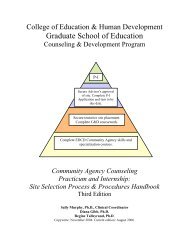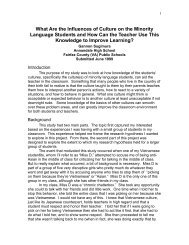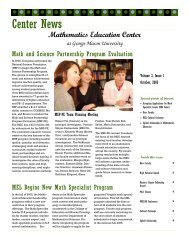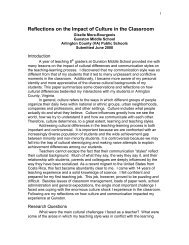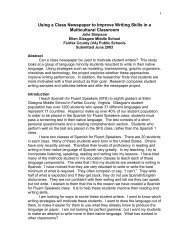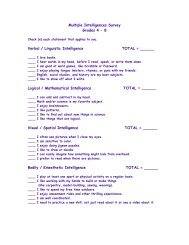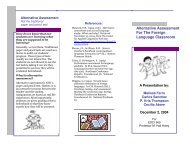What Do You Want to Write - GSE
What Do You Want to Write - GSE
What Do You Want to Write - GSE
You also want an ePaper? Increase the reach of your titles
YUMPU automatically turns print PDFs into web optimized ePapers that Google loves.
4<br />
Figure 1.1<br />
Maslow’s Hierarchy of Needs (Maslow, 1970)<br />
Selfactualization<br />
Esteem:<br />
Strength<br />
Esteem:<br />
Status<br />
Love<br />
Belongingness<br />
Affection<br />
Safety Security Protection<br />
Freedom<br />
from fear<br />
Air Water Food Rest Exercise<br />
Behavior is also often discussed in terms of whether it is intrinsically or<br />
extrinsically motivated. Deci (1975) defined intrinsically motivated activities as those<br />
“for which there is no apparent reward except the activity itself. People seem <strong>to</strong> engage<br />
in the activities for their own sake and not because they lead <strong>to</strong> an extrinsic reward.” As<br />
stated above, behaviorist definitions tend <strong>to</strong> be linked <strong>to</strong> extrinsic motivation, cognitive<br />
definitions with intrinsic motivation. Research has shown that intrinsically motivated<br />
activities more often lead <strong>to</strong> achievement of goals (Kohn, 1993; Brown, 1994), which<br />
has led some educa<strong>to</strong>rs <strong>to</strong> advocate for activities that “capitalize on the intrinsic by<br />
appealing <strong>to</strong> learners’ self-determination and au<strong>to</strong>nomy” (Brown, p.42). This<br />
encouragement of the intrinsic is coupled with criticism of extrinsic motiva<strong>to</strong>rs as<br />
creating a dependency that “focuses students <strong>to</strong>o exclusively on the material or<br />
monetary rewards of an education” and teaches them <strong>to</strong> “fear failure… and refrain from<br />
potentially rewarding risk-taking or innovative behavior” (Brown, p.40). However, Deci’s<br />
definition does not take in<strong>to</strong> account the rewards of meeting our needs at all levels of<br />
Maslow’s hierarchy. It seems more useful <strong>to</strong> consider motivation not in terms of<br />
whether or not there is a reward beyond the activity itself, but instead according <strong>to</strong><br />
whether the activity in question meets the needs of the student.




